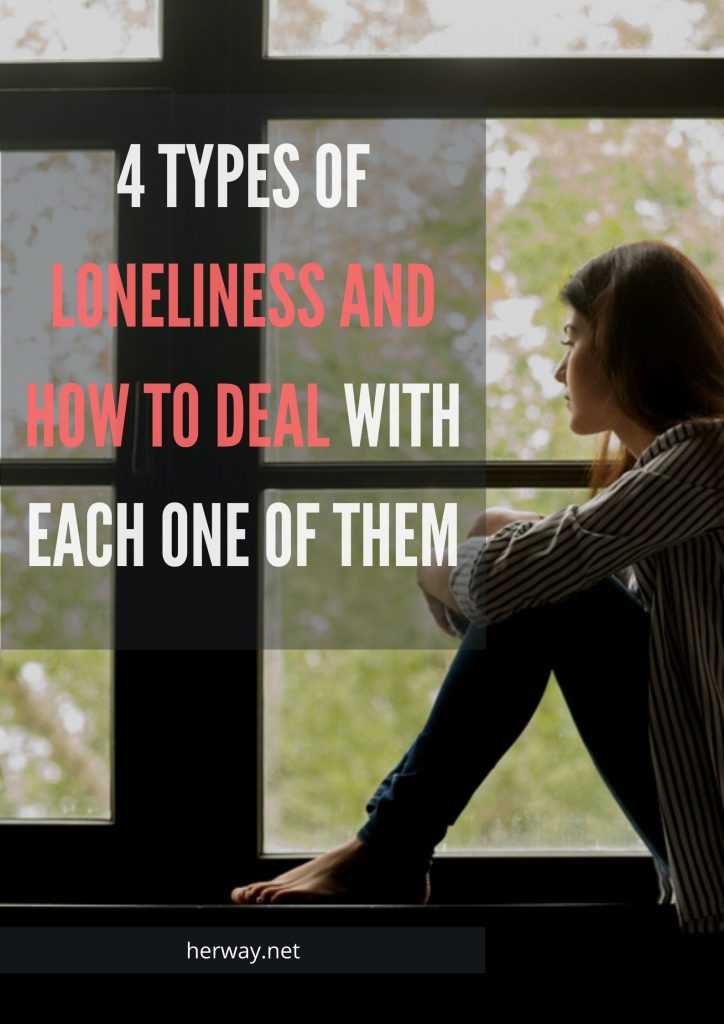4 Types Of Loneliness And How To Deal With Each One Of Them
We’re all social beings, which means that as much as we try to fight it, we have the inborn need to coexist with other people.
However, despite that, loneliness is more common in modern times than you might think.
In fact, according to some research, most people feel lonely in a way but cope with their condition and refuse to show it.
1. Situational loneliness

The good news about situational loneliness is that it’s temporary. It’s not a condition that lasts for a very long time.
In fact, the name says it all—it is a type of loneliness that is born from a certain situation you’re currently in.
There are different scenarios in your life that can cause this type of loneliness.
For example, when you break up a long-term relationship, you can be surrounded by multiple people all the time but you miss your ex and the lack of him makes you feel like you’re completely on your own.
Also, this can happen when you move to a new city, start living alone or change jobs.

Each of these types of loneliness is cured the moment you get used to the new opportunities you find yourself in.
So what’s the best way to help yourself during this transitional period?
Well, it’s to stop holding on to your history and try hard to open up to these new opportunities in order to adapt as soon as possible.
You need to accept the fact that the past isn’t coming back, so there is no point in you contemplating it. Instead, be brave enough to take a leap into your new future.
2. Emotional loneliness

On the other hand, emotional loneliness doesn’t depend on the circumstances.
Nothing has to change significantly in your life but you can feel lonely on the inside.
When someone looks at you, they might even think that you’re having the best time ever and that everything is in perfect order. However, the truth is different and you feel more alone than ever.
If this is the case, it is a clear sign that you lack an emotional connection with other people or one given individual.
You can have a lot of people to spend time with and to talk about random things but you have no one who really gets you and no one you feel comfortable opening up to completely.

To put things simply, if you’re experiencing emotional loneliness, at first glance, you have numerous social contacts but the quality of these contacts is what bugs you.
This is what happens when you find yourself in any type of relationship, especially a romantic one, in which you’re not fulfilled.
You are emotionally distant with your partner and you feel alone near them, even though they’re physically present next to you.
When you’re going through something like this, the first thing to do is try working on the given relationship, if you think it’s worth saving.
Alternatively, if you notice that all of your attempts are in vain, it’s time to walk away and find some other relationship that won’t leave you feeling like this.
3. Social loneliness

Social loneliness is usually caused by social isolation and a lack of contact with other people.
It is a type of loneliness that impacts shy, introverted people and ones with deeply rooted insecurities.
As much as you try, you simply don’t know how to make friends.
You have many acquaintances and everyone seems to see you as a nice person but you have never had the ability to form a deeper connection with another human being.
Ever since you can remember, you were some kind of an outcast.
It doesn’t necessarily have to mean that your peers bullied you but you never had any real friends either.

Well, if this is something you can relate to, I hate to break it to you but you’re the one with the problem—not everyone else.
First and foremost, you have to work on your self-esteem.
You’re good enough and you have numerous qualities—you just have to be confident enough to let people see them. Also, maybe it’s time to lower your standards.
To begin with, you don’t have to find friends who will perfectly match you and your interests; give someone different a chance and see where it takes you.
4. Chronic loneliness

When you experience chronic loneliness, this way of life becomes your comfort zone.
On the outside, people think that you’re independent and that you have what it takes to go through life alone. Even though this is true, it comes at a certain price.
Yes, you’re self-sufficient and technically don’t need anyone to help you out but it would be nice to be able to rely on another human being for a change.
The thing about chronic loneliness is that it can last for ages before you diagnose yourself with it.

In fact, most people who experience it refuse to accept it as a real thing.
However, if you do have chronic loneliness, the thing to do about it is to step out of your comfort zone.
Relax and start breaking your habits and routines; I promise that it will open your life up to new experiences and people.








